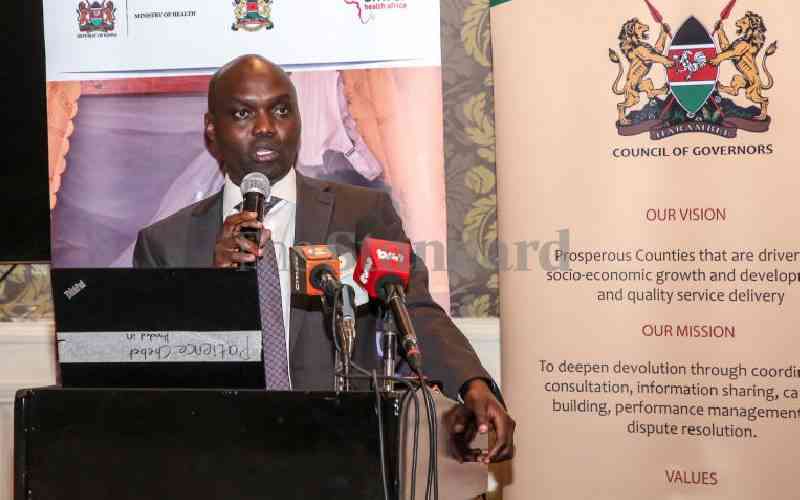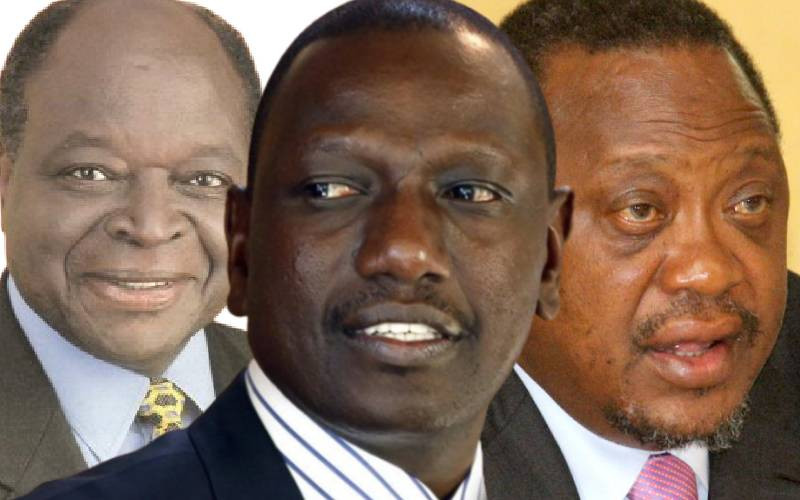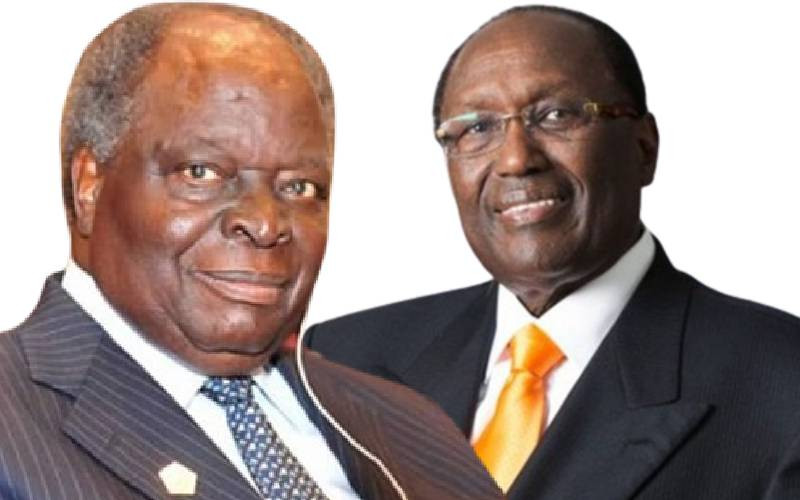 |
|
Essau Kioni. He wants intelligence officers to be given arms to enable them fight terrorism. [PHOTO: WAINAINA NDUNG’U/STANDARD] |
By WAINAINA NDUNG’U
A former Intelligence officer has recommended that National Intelligence Service (NIS) officers be bestowed with full police powers.
Mr Essau Kioni, a former advisor to retired President Mwai Kibaki complained yesterday that the 1998 amendment of the National Security Intelligence Service (NSIS) Act turned Kenyan spies into “paper tigers” whose only work was “recommend action against threats to national security.”
If accorded police powers, Kioni said Intelligence officers would not only detect but also counter security threats. “What we used to do (in the past) was to nip any threat at planning stage,” he emphasised.
Kioni who first worked for Special Branch—the precursor of NSIS now known as National Intelligence Service (NIS)—called for constitution of a commission of inquiry into the Westgate attack to end the ongoing finger-pointing and buck-passing.
He said the findings of the commission could help pre-empt future terrorist attacks.
Kioni who holds a Masters of Arts in Security and Crime Risk Management from the University of Leicester in United Kingdom said he did not see the reason why NIS should be blamed over the attack.
“I don’t agree with them (those blaming NIS) because in the past the spy agency had powers to operate as police officers,” said Kioni.
During its heydays, the Special Branch could arrest, detain and investigate before making a decision on whether to release suspects or hand the over to the CID or the regular police for more investigations or prosecution. “We were one and the same (with the police). We used to work together. The police could use our statements to prosecute in court. The rain started beating us when we decided to separate the spy agency and give its officers a civilian designation,” Kioni told The Standard.
Tactical advantage
He said Kenyan spies work under extremely difficult circumstances while confronting radical terrorist groups because NIS “remained largely an internal organisation fighting a global menace”.
He, however, noted that the NIS appeared to be receiving credible Intelligence from its counterparts in friendly countries such as the United States and Israel, adding that the problem could be at the “action stage”.
“The fact that no Israeli died at the Westgate Mall means that the Intelligence about an impending attack between September 13 and September 28 was very credible,” said Kioni. He added: “It appears their systems were able to reach out to their citizens to stay off the mall during that period.”
He blamed the government for bowing to pressure and allowing the watering down of the Anti-Terrorism Act saying this left loopholes that have given tactical advantage to terrorists.
Kioni said he believed officials of the NIS, if given firearms, would not abuse powers and trample on individual rights, a practice that was uncommon with the “dreaded” Special Branch.
Stay informed. Subscribe to our newsletter
He added: “Misuse of powers then was because of the political will of the time. Now the NIS director requires to be vetted by Parliament and any officers operating outside the law will do so at their own peril. They will be taken to court.”
He said it was a mistake to equate the NIS with the American CIA (Central Intelligence Agency) and the British M16, which are civilian spy agencies in charge of external affairs outside their countries. The internal spy function in America was spearheaded by the Federal Bureau of Investigations (FBI) while the M15 did the same in Britain in close collaboration with Scotland Yard with officers of those agencies retaining full powers of police officers.
Kioni said while the agencies that responded to the Westgate attack did a good job, there were glaring lapses underlining non-co-ordination and unpreparedness in disaster and crisis management.
“Ordinarily, there should have been in existence a pre-planned and organised disaster management committee and centre coming into effect automatically in case of such an occurrence,” said Kioni.
Kioni said to avoid any conflicts between agencies including the Kenya Red Cross (KRC), the Disaster and Crisis Management Committee would coordinates everything related to the event and all media briefings handled by its chairman.
He said it was distressing to see the various government agencies as well as the KRC issuing conflicting information about the rescue operation. This would not have occurred had there been an elaborate crisis management committee and centre.
He also said the country had shown further inanity and courted disaster by allowing unknown volunteers to serve beverages and meals to security officers and journalists on the site.
“What if a wicked volunteer served laced refreshments to the rescue team and the journalists?”
 The Standard Group Plc is a
multi-media organization with investments in media platforms spanning newspaper
print operations, television, radio broadcasting, digital and online services. The
Standard Group is recognized as a leading multi-media house in Kenya with a key
influence in matters of national and international interest.
The Standard Group Plc is a
multi-media organization with investments in media platforms spanning newspaper
print operations, television, radio broadcasting, digital and online services. The
Standard Group is recognized as a leading multi-media house in Kenya with a key
influence in matters of national and international interest.
 The Standard Group Plc is a
multi-media organization with investments in media platforms spanning newspaper
print operations, television, radio broadcasting, digital and online services. The
Standard Group is recognized as a leading multi-media house in Kenya with a key
influence in matters of national and international interest.
The Standard Group Plc is a
multi-media organization with investments in media platforms spanning newspaper
print operations, television, radio broadcasting, digital and online services. The
Standard Group is recognized as a leading multi-media house in Kenya with a key
influence in matters of national and international interest.










